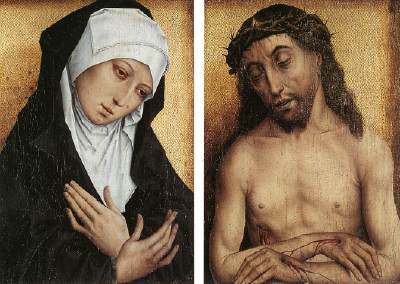
Whenever I'm off from the Sunday morning pastoral duties of my own church, I really enjoy attending other churches to see what they're doing and how they do it.
Last Sunday in Cincinnati I had the chance to attend
Crossroads Community Church, located in the
Oakley neighborhood. Crossroads is a ten-year-old, non-denominational fellowship whose mission is, "connecting seekers with a community of growing Christ-followers." For this review, I'll use the format of the "Mystery Visitor" in
Outreach Magazine.
Getting There: Crossroads' website quickly answers all the questions of a first time visitor--who they are, where they are, and what to expect. Getting there was easy.
A+
Outside the Church: I attended the early service, so there was more than enough parking. From the moment we entered the huge lot, someone was directing us to a space.
A+
First Impressions: Greeters welcomed us at the door. The lobby was huge. Plenty of comfortable chairs, but I expected to see a few more. This church is serious about coffee! They must have had 6 different kinds available. Glad I didn't stop by Starbucks on the way! For a moment, I couldn't find the auditorium, but that wasn't a problem. The building is a newly renovated old factory. The sleek silver-black
design retains that factory "charm" (if there is such a thing!).
A+Inside the Church: Nearly all the people there were Caucasian. I did see a few blacks. Most appeared to be upper-level income folks, but I did notice several who definitely were not. During the service, the lead pastor mentioned that since the church moved into their new space, the church has seen a greater spread of economic diversity amongst its attendees. However, I don't think the racial diversity of the neighborhoods surrounding Crossroads was reflected in the service.
B+Service Experience: On stage was a huge 30 foot ladder and in the big letters, "The Joneses." The hour-long service featured 1 song (a creative interpretation of "In the Secret") performed at the service's beginning and end, and two artsy videos. The flow of the service went well and could have been further enhanced in a couple of ways. First, I would have switched the order of the two videos. The B&W 1960's-feel video (featuring two people on split screen competing to keep up with one another) did a better job of introducing the day's theme. Then, I would show the artsy claymation video second (light shining and then dimming out); it would have been good at the end of the message because the audience now knows the day's application; we can now "feel" it through a video experience. Or, I would have cut one of the videos and replaced it with another song. Second, the audience was told in the introduction to both videos, "Here's what this is about." That's like telling me how the story ends. Instead, let me experience it first; then afterwards, help me interpret my own judgments. The atmosphere was comfortable and laid back.
B+People Connection: The auditorium lights over the audience was dimmed almost the entire time, except for the service's few moments where people were asked to introduce themselves to their neighbor. Since the attendance was low, my Dad and I sat in a place where we could maintain space between ourselves and others. My Dad said afterwards he thought the dark room was intended to keep people comfortable with not having to introduce themselves. But as a first time visitor, usually you just want to comfortably slip in and out.
BThe Message: The theme of the message was getting honest with others about your money. 3 Scriptures were briefly mentioned. The pastor did a sit-on-the-couch interview with a couple who got honest with their more well-to-do friends about their spiraling debt problem. The interview format was a good and gently persuasive way to talk about a challenging subject--the pressure we feel trying to "keep up with Joneses." The topic was an
A+. But if I were to grade the reason
why I should get honest with my friends about my money (here, I'm talking about where the source of the authority's application comes from), I would give a
C- (now the pastor in me is showing). It was hard to discern how the application was arising out of Scripture. The 3 Scripture passages were mentioned only very briefly, not shown on the video projection screen, and not explained in any way. The testimony of the couple was incredible. Being shown a more direct connection of how their decisions arose from what the Bible teaches would have enhanced their testimony even more.
Spiritual Response: Kind of hard to gauge--especially considering the topic of the day. An offering was passed during the service, so that was an opportunity to put your money where your heart is. I can't remember if the audience was told we could talk to someone afterwards if we wanted to talk. My traditional church kind-of-guy Dad felt like he was sitting in a live TV show--Oprah or something.
B
Visitor Touchpoints: We walked around in the lobby afterwards, picked up some brochures, and got another coffee. My Dad jokingly asked a church volunteer, "Did I miss the cappuccino?"
AReturn Visit? Definitely. Crossroads' seeker sensitive approach is touching a lot of lives. As an established Christian, I'd be interested in learning about their "Next Level" ministry.
A
Overall Experience: I'm glad I went! It's a whole lot different than ministry in rural Kansas. A
 "O little town of Bethlehem, how still we see thee lie!
"O little town of Bethlehem, how still we see thee lie!





.JPG)
.JPG)
.JPG)
.JPG)
.JPG)
.JPG)
.JPG)
.JPG)
.JPG)
.JPG)
.JPG)
.JPG)
































